Updated on: February 25, 2024 06:16:36
High blood pressure but not going to the hospital for check-up, taking medicine at home without permission, 2 patients were admitted to the emergency room in critical condition.

An emergency patient at Bach Mai Hospital (Illustration photo)
Dr. Tran Song Giang - Head of Unit C9, Cardiovascular Institute, Bach Mai Hospital said that the first case is a 67-year-old male patient who has had high blood pressure for many years.
The patient still took medication every day, but his blood pressure was consistently at 150/95mmHg. Since there were no signs of discomfort, the patient did not return to the doctor for a prescription adjustment.
On the morning of February 18, after drinking alcohol, the patient felt a headache, dizziness, and numbness on the right side of his body. When he got home, he measured his blood pressure and found it high (190/105mmHg), so he took another blood pressure lowering pill.
After a while, the man felt better, although the right side of his body was still slightly numb, so he still did not go to the hospital.
By the afternoon of February 19, the patient's condition had worsened, and he could no longer move his right arm and leg. His family took him to Bach Mai Hospital for emergency treatment, where a CT scan of his brain showed a 30-hour cerebral embolism.
Case 2 is a 75-year-old female patient diagnosed with high blood pressure for many years, and is being prescribed two blood pressure lowering drugs by a doctor at the Military Hospital.
Occasionally, the patient forgets to take his medication. For about a week now, his blood pressure has fluctuated erratically, sometimes reaching 180/100mmHg.
For the past 5 days, the patient has had a headache and dizziness. He went to a private clinic and the doctor diagnosed him with a hypertensive crisis and vestibular disorder and prescribed medication for outpatient treatment.
Three days before being admitted to the hospital, the patient had slurred speech, but the family thought that public hospitals were closed on Saturdays, so they did not take him to the hospital immediately. On Monday, the patient was admitted to the hospital and was diagnosed with a cerebral infarction and left-sided paralysis.
According to Dr. Tran Song Giang, both patients suffered strokes and cerebral infarctions but were hospitalized late, leading to hemiplegia.
“If admitted early, during the “golden hour”, the patient will be given clot-dissolving drugs or suction to remove the blood clot causing cerebral embolism, and the signs of stroke such as hemiplegia will recover quickly, and may even return to normal,” said Dr. Giang, adding that the cause of the stroke in both patients was due to poor treatment of high blood pressure.
The expert noted that the optimal blood pressure to be achieved during treatment is below 130/80mmHg. Therefore, when blood pressure is above 140/90mmHg, you need to return to see your doctor to increase the dose or add more medication.
Patients should not stop taking medication on their own or take medication irregularly every day. When signs of suspected stroke appear, go to the hospital immediately.
Signs of a stroke
- Loss of balance, headache, dizziness
- Blurred vision
- One side of the face is crooked or droopy.
- The arm or leg on the same side is numb or weaker than the other side
- Difficulty speaking, lisp
Stroke is a medical emergency. When experiencing the above signs, Dr. Gian recommends that patients should be quickly taken to emergency medical facilities during the golden hour. It is important to pay attention to properly treating high blood pressure to limit the risk of stroke.
"The "golden hour" period is calculated from the time abnormal symptoms appear until diagnosis is from 4-6 hours," the doctor informed.
According to NGUYEN NGOAN (VTC News)
Source


![[Photo] Comrade Nguyen Duy Ngoc visited and worked at SITRA Innovation Fund and ICEYE Space Technology Company](https://vphoto.vietnam.vn/thumb/1200x675/vietnam/resource/IMAGE/2025/10/23/1761174470916_dcngoc1-jpg.webp)
![[Photo] General Secretary To Lam and his wife begin their official visit to Bulgaria](https://vphoto.vietnam.vn/thumb/1200x675/vietnam/resource/IMAGE/2025/10/23/1761174468226_tbtpn5-jpg.webp)
![[Photo] Award Ceremony of the Political Contest on Protecting the Party's Ideological Foundation](https://vphoto.vietnam.vn/thumb/1200x675/vietnam/resource/IMAGE/2025/10/22/1761151665557_giaia-jpg.webp)
![[Photo] Da Nang: Shock forces protect people's lives and property from natural disasters](https://vphoto.vietnam.vn/thumb/1200x675/vietnam/resource/IMAGE/2025/10/22/1761145662726_ndo_tr_z7144555003331-7912dd3d47479764c3df11043a705f22-3095-jpg.webp)


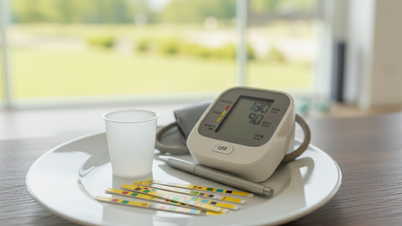




















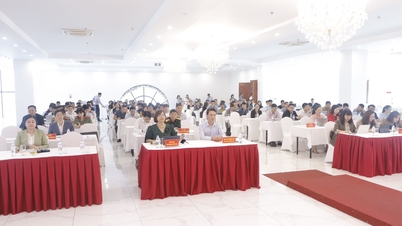


























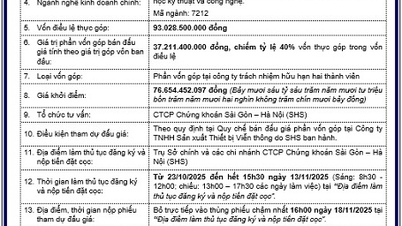
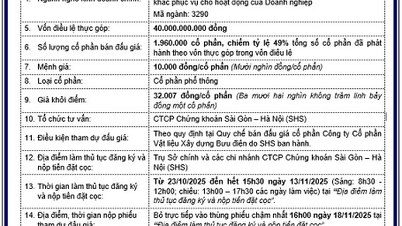












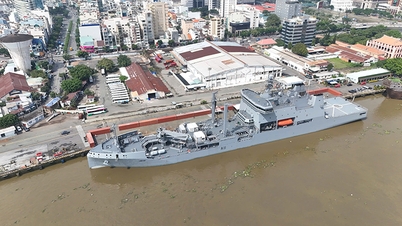














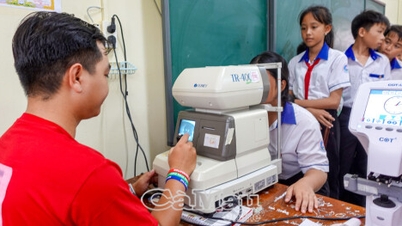






















Comment (0)